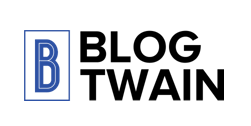Nicolas Sarkozy
Synopsis
Nicolas Sarkozy was born January 28, 1955 in Paris, France. He studied political science and served as mayor of Neuilly-sur-Seine for 20 years before entering national French politics. Sarkozy served as Interior Minister before being elected president in 2007. His term was marked by personal and political controversy, and he was defeated for reelection in 2012.Early Life and Career
Nicolas Sarkozy was born on January 28, 1955 to Greek and Hungarian immigrants. He was the second of three children, and his father abandoned the family when he was a toddler. To support the family, his mother studied and became a lawyer. He was raised Catholic in Neuilly-sur-Seine, a wealthy suburb of Paris, and he later said that while growing up, he felt inferior to his wealthier classmates.Rise to Power
Sarkozy's political career started early. He was elected to his first political office—Municipal Councillor of Neuilly-sur-Seine—at the age of 22. Six years later, he was elected mayor. He served as mayor for nearly 20 years, before entering national politics.In addition to serving as mayor, Sarkozy served as budget minister from 1993 to 1995. When he snubbed President Jacques Chirac in 1995 by supporting Édouard Balladur for president, however, he lost the position. Although Chirac put his grudge aside in 2002, and appointed Sarkozy as French minister of the interior, Sarkozy's tenure in Chirac's administration was a bumpy one. The cabinet was reshuffled in 2004, and Sarkozy was appointed as finance minister. He held this position briefly; when Sarkozy became leader of the Union for a Popular Movement later that year, he resigned his post, in accordance with an agreement with Chirac. In 2005, Sarkozy was reappointed as interior minister, without resigning as head of the UMP.
As interior minister, Sarkozy attracted attention during the 2005 Paris riots by referring to troublemaking youth as "scum" and "rabble," and stating that the rundown suburbs should be washed out "with a power hose."
Foreign Policy
One of Sarkozy's first orders of business was to strengthen France's relationship with the United States, which had been chilly since Jacques Chirac refused to send troops to Afghanistan. Sarkozy promised—and delivered—troops to aid in the war, and France rejoined the North Atlantic Treaty Organization's military structure in 2009.Almost immediately after entering office, Sarkozy began to negotiate with Colombian President Álvaro Uribe and the guerilla group Fuerzas Armadas Revolucionarias de Colombia, in an attempt to secure the release of hostages, particularly Ingrid Betancourt, a dual French/Colombian citizen. France opposed a military effort and preferred diplomatic negotiations, but in 2008, Colombian forces, with American guidance, successfully rescued 15 hostages without informing France.
In July of 2007, Sarkozy announced that France, along with other European countries, had obtained the release of the six Bulgarian nurses who had been held in Libya for more than eight years. In order to secure their extradition, he signed security, health-care and immigration pacts with Muammar Gaddafi. He also signed an arms trade agreement, sparking controversy and a criticism that he had bartered arms for hostages with a "rogue state." Sarkozy, as well as Bulgarian officials, deny that the two deals were related.
Sarkozy's environmental policies were more popular. During the 33rd G8 summit, he announced that France would attempt to reduce carbon dioxide emissions by 50 percent by 2050, in an effort to reduce global warming. In 2010, France was ranked No. 1 on Yale University's Environmental Performance Index.
هل أعجبك الموضوع ؟


ليست هناك تعليقات:
إرسال تعليق